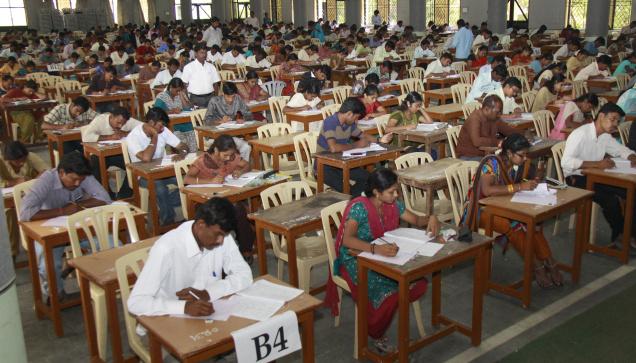Government recommends exam papers be sent online to centres; papers will be encrypted and opened for printing by special passwords.
by The Editors | editor@themetrognome.in
Come university exam time, and rising cases of examination paper leaks end up with exams being cancelled or postponed, and students collapsing in a heap of anxiety and frustration. Concerned by a spate of exam paper leaks in Mumbai and the rest of the State this year – some of them pertaining to engineering exams – the Maharashtra State Government decided to draw up a series of recommendations for university exam centres to follow to minimise paper leakages.
A Government Resolution to this effect was passed on July 20, 2012 by the Department of Higher and Technical Education, to ensure that examinations all across the state were undertaken in a secure and fool-proof manner with the use of Information and Communication Technology (ICT). In accordance with this, an 18-member committee comprising members of the education department, vice chancellors of several Maharashtra universities and knowledge partners was constituted to meet and draw up a set of recommendations for all universities to study and implement as a pilot study prior to final exams in the year 2013.
The recommendations
As per the 207-page report titled ‘Report on reforms in examination system in universities of Maharashtra through use of Technology’, submitted by the Committee to the Governor K Shankarnarayan on November 3, the Committee studied the best practices of over 10 universities (in Maharashtra and outside) that have attempted to minimise or eliminate malpractices and errors in examination practices.
As per the report, “In order to eliminate the threats and challenges faced in distribution and delivery of question papers to the respective institutes, the universities should adopt Information Technology Solution for secure delivery of question papers. The Committee also recommends that each university should implement this system on pilot/experimental basis for exams conducted in first half of 2013. Following this, by 2014, it should become a matter of practice. However, if any university can implement this system fully before the suggested dates, it would be a very welcome step.”
The key suggestion in this regard is: “The question paper once randomly selected/generated from the question paper bank is encrypted and transmitted over a secure channel to the examination centres just one hour before the examination. At the examination centre, it is decrypted with the key/password and printed. This will overcome the leakage of question paper during transportation and printing.”
The Committee hopes that this above objective will be achieved by the all-important ‘secret key’, which “should be generated by the system and delivered securely to the concerned persons before the examination, there should be secret keys for individual papers, there should be a provision to deliver secret keys by email, SMS or using the ITS, and there should be a secret key verification system for printing of question papers. Besides this, there should be a well-defined time duration for question paper upload, secret key delivery and question paper printing.”
There is also a recommendation that by the first half of 2012, “all universities should use OMR (Optical Mark Recognition) and Barcode Technology in cover page of answer booklets of University Examinations on pilot/experiment basis. Following this, by 2014, universities should use this technology for all examinations.” This will curtail such malpractices as dummy candidates taking the exams, or wrong entry of data by the student.
Other recommendations include online registration of students for issuance of hall tickets (details taken will include student’s mobile number as well), question bank or question paper bank generation, digital scanning and onscreen evaluation of answer sheets, online application for re-evaluation and dematting of degrees and certificates etc.




